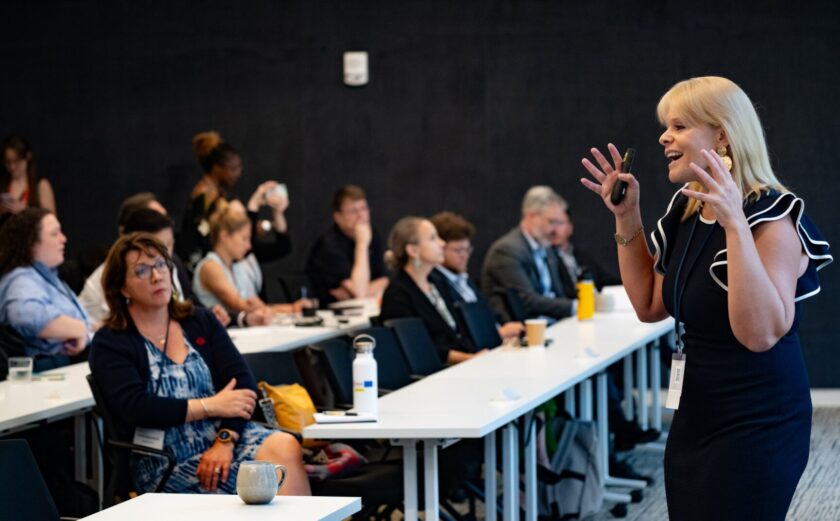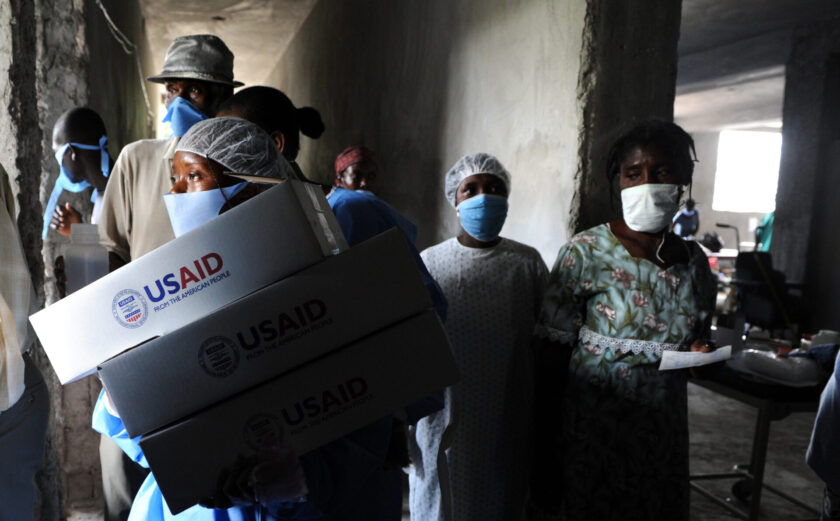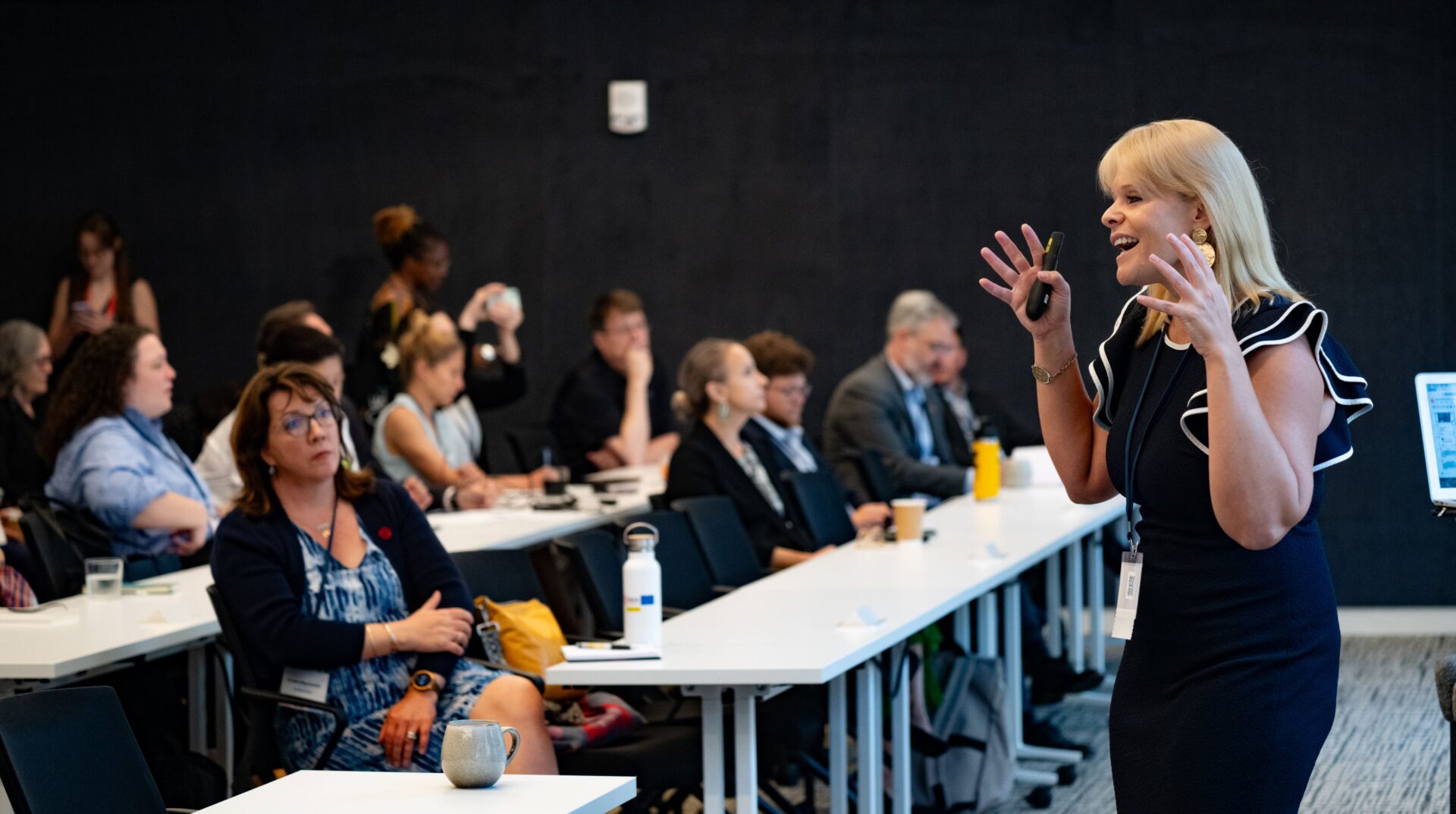
Recapping Forum 2024
And Celebrating InterAction's 40th Anniversary
On June 26 and 27, over 240 leaders and innovators in the global development and humanitarian community gathered for InterAction’s flagship annual event, Forum, at Convene in downtown Washington, D.C.
Headlined by speakers from Congress and the Administration, and complemented by panel discussions and interactive sessions from over 30 organizations, the event sparked broad discussion and debate on a variety of issues—from localization and sanctions, to artificial intelligence and current global crises.
During opening remarks, InterAction President and CEO, Tom Hart, highlighted how “the number, scope, cost, and duration of humanitarian crises” is unsustainable, a common point made over the two-day event. This comes as “there are more questions about America’s role in the world,” as was seen in the Ukraine supplemental deliberations, Hart noted. Nevertheless, the leaders and innovators needed to drive change were sitting in that room and had done it before.
In fact, the InterAction community has been doing it for four decades. This year marks 40 years since InterAction was formed. The video below, released at Forum, takes a look back at the organization’s history.
General Sessions: Day 1
The opening panel discussion on Wednesday, moderated by Jonathan Nash, President and CEO of Blumont, examined the current global development landscape. Nash was joined by Dennis Vega, Acting Deputy Administrator for Management and Resources at USAID; Moses Isooba, Executive Director of the Uganda National NGO Forum; and Michelle Bekkering, National Engagement Director for USGLC. With the development landscape rapidly changing, panelists explored new strategies and approaches that can foster resilience and sustainable growth, from innovative finance models to enhanced partnership frameworks.
We were also joined by Rep. Michael McCaul, Chairman of the House Foreign Affairs Committee, who sat down for a fireside chat with Tom Hart. Noting that “PEPFAR is one of the best investments that America has made,” Rep. McCaul spoke about the need for organizations to continue to work with the U.S. government to uphold human rights around the world and counter the influence of authoritarian regimes.
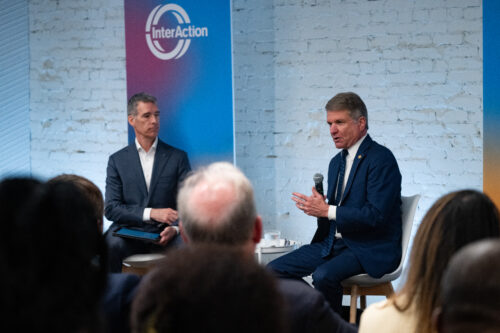
Day 1 wrapped up with a wide-ranging discussion with former USAID Administrator Gayle Smith. Her thoughtful advice included: being more mindful of the language the sector uses to describe crises, because language has the ability to redefine issues; finding ways to better show how much money and influence the humanitarian community has; and arguing that one of the most important challenges is simply getting opposing sides in the same room as each other to talk.
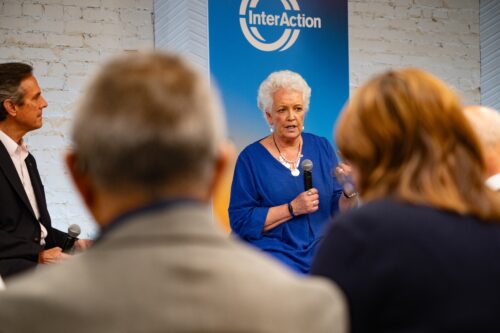
General Sessions: Day 2
On Thursday, Ambassador Linda Thomas-Greenfield, the Representative of the United States to the United Nations, delivered a moving keynote speech that reiterated the vital importance of humanitarian aid in addressing global challenges. The Ambassador asked that the InterAction community continue its unrelenting advocacy, because time and time again she has relied on our Members’ support.
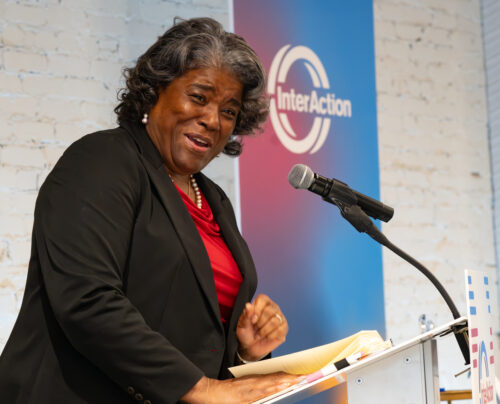
We continued with a panel discussion on the future of humanitarian action with Sorcha O’Callaghan, Head of the Humanitarian Policy Group at ODI, Abby Maxman, President and CEO of Oxfam America, and Janti Soeripto, President and CEO of Save the Children US. Moderated by Julien Schopp, the Vice President of InterAction’s Humanitarian Team, the panel sought to not understate the significance of the major global challenges we currently face.
Forum’s final keynote address was from Rep. Ed Royce, former chairman of the House Foreign Affairs Committee. Rep. Royce stressed the need to drive bipartisanship in foreign assistance given the state of polarization and those that are looking to strip funding from the U.S.’s international affairs budget.
Breakout Sessions
Outside of keynote sessions and fireside chats, Forum encompassed 36 breakout sessions, including those tailored to C-Suite staff, that covered staff mental health, misinformation, crisis communications, advocacy, general election preparation, and everything in between. We extend a huge thanks to all of the organizations and speakers that took the time to share their expertise and perspectives—the strength and diversity of the InterAction community was truly on display.
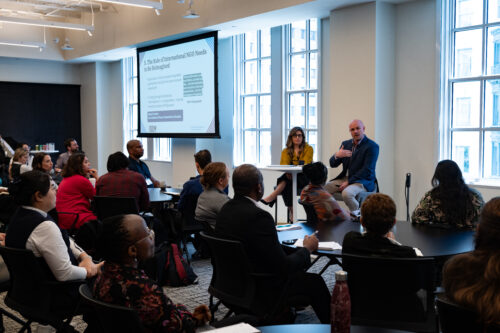
InterAction Awards
Forum also provided a venue for InterAction’s 2024 award winners to receive their much-deserved recognition. InterAction’s annual awards highlight exceptional individuals in the international development and humanitarian sectors. Their contributions have been instrumental to advancing and defending the rights of poor and vulnerable communities and driving the evolution of the NGO sector.
Sean Carroll, President and CEO of Anera, received the Julia Vadala Taft Outstanding Leadership Award, Eatizaz Yousif, Country Director for the International Rescue Committee (IRC) in Sudan, won the InterAction Humanitarian Award, and the National Democratic Institute won the Disability Inclusion Award. For more information about the award recipients and the awards, see our write up HERE.
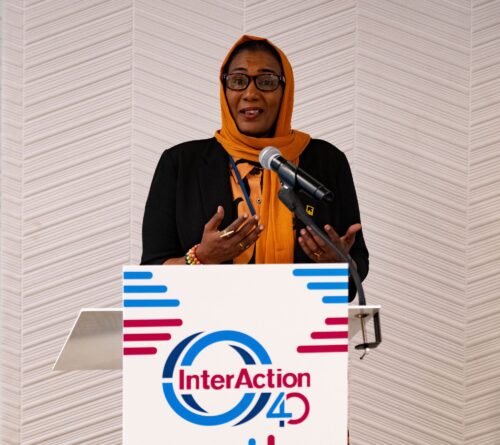
Thank You
Forum 2024 proved to be another insightful, thought-provoking, and inspiring gathering of the InterAction community. Thank you to all who attended, donated their time to speak, and sponsored the event—without you, it would not be possible. Even though the world faces daunting challenges ahead, it is clear that many of the best and brightest minds are here to make the world a more safe and prosperous place for all.



